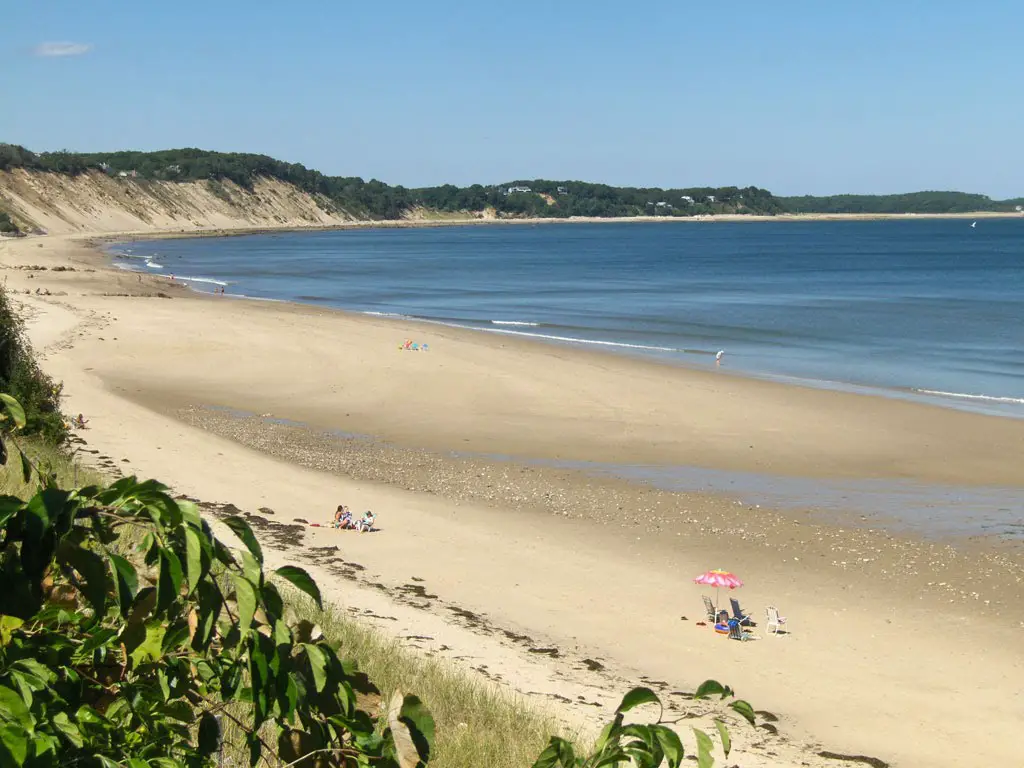Many tidal cycles ago, I took a course in Maritime Law at the excellent
Williams-Mystic maritime studies program, taught by this rather celebrated
maritime law scholar. Needless to say I recall practically nothing of value--other than that the Massachusetts laws regarding public access to the shoreline are both stupendously anarchonistic and chronically contested--indeed, Billy Bulger himself led a perennial (and apparently not entirely futile?) crusade against them,
after a beachowner booted him from his beach.
The law in question is the
Fishing, Fowling & Navigation Act of 1647 (!). The state summarizes it most helpfully
here, and the summary is worth quoting in full:
"The Massachusetts Bay Colony originally followed this rule, until its legislators decided to transfer ownership of certain tidelands to coastal landowners, in order to encourage private wharf construction on these so-called "intertidal flats." This general land grant was accomplished by the Colonial Ordinances of 1641-47, which in effect moved the line between public and private property to the low water mark, but not farther seaward of the high water mark than "100 rods," or 1,650 feet. This intertidal area (now called "private tidelands") is presumed to belong to the upland property owner, unless legal documentation proves otherwise for a given parcel (as is true in certain segments of Provincetown, for example).
Although the Colonial Ordinance changed the ownership of most intertidal flats from public to private, it did not transfer all property rights originally held in trust by the state. For one thing, no rights to the water itself (as distinct from the underlying lands) were relinquished by the Ordinance. Moreover, the law specifically reserved for the public the right to continue to use private tidelands for three purposes-fishing, fowling, and navigation.
Scope of Public and Private Rights
Over the years, Massachusetts courts have ruled that the scope of activities on private tidelands covered by the reserved public rights of fishing, fowling, and navigation is broad, and includes all of their "natural derivatives." For example:
--The right to fish includes the right to seek or take any fish, shellfish, or floating marine plants, from a vessel or on foot;
--The right to navigate includes the right to conduct any activity involving the movement of a boat, vessel, float, or other watercraft, as well as the transport of people and materials and related loading and unloading activity; and
--The right to fowl includes the right to hunt birds for sport as well as sustenance. (The Massachusetts Attorney General takes the position that the right of fowling also includes other ways that birds can be "used," such as birdwatching, but also notes that this issue has not yet been addressed by the courts.)
Clearly, these rights cover a variety of both old and new activities that many people enjoy, such as surfcasting and windsurfing. Still, the courts have imposed some limits. The right of fishing, for example, does not allow the use of structures for aquaculture or the taking of plant debris washed up on the beach. Also, courts have made it clear that the public right to use this area does not include the right to simply stroll, sunbathe, or otherwise engage in recreation unrelated to fishing, fowling, or navigation. Without permission from the landowner, such general recreation is trespassing. There is only one narrow exception to this rule-because there are no private property rights in the water itself, the public is allowed to swim in the intertidal zone provided the swimmer does not touch the private land underneath or use it to enter or leave the water."


